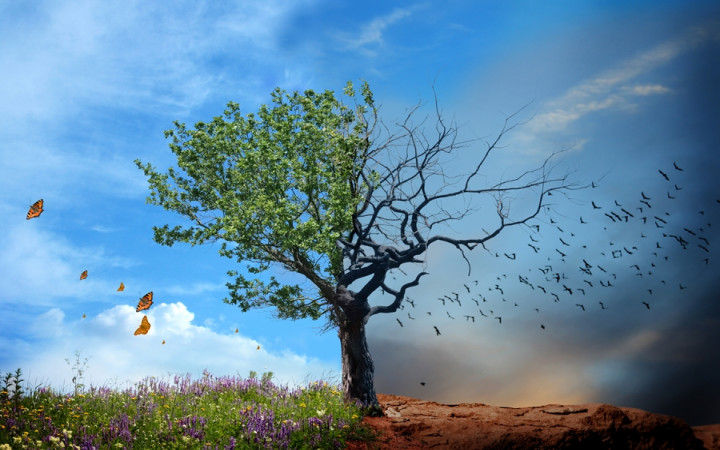Why do things have to die? What a great question that has been asked by many of our Wonder Friends. In fact, it's a question that every human being has surely thought about at one time or another.
At some point in time, every single person comes face-to-face with the reality of his or her mortality. All things that live will eventually die. It's a fact of life, but it can be hard to face at times. When we lose a beloved pet or a special loved one, the loss can be devastating and difficult to cope with.
So why can't we live forever? There are philosophical and religious aspects to that question that are way beyond the scope of this Wonder of the Day. We can, however, look at some of the practical, scientific aspects that will shed light on that question. We'll also look at how we might live longer in the future, even if we can't live forever.
Death is an essential part of the circle of life. Whether you're talking about a human being, an animal, or a plant, every living thing comes alive at some point. For humans and animals, the first step in the circle of life is birth.
From birth onward, the life cycle is focused on survival. If we survive, we grow and mature. At some point, our bodies begin to age more rapidly until our eventual death ends the life cycle.
To survive, most living things need food, water, sunlight, and oxygen. For human beings and animals, these things are usually supplied by our parents until we're able to provide them for ourselves. For human beings, survival is usually fairly easy, and we're able to concentrate on many other enjoyable aspects of life.
For some humans, most animals, and nearly every other form of life, survival is a day-to-day task that requires effort and energy. Because survival can be such a struggle, the life cycle of some organisms is very short. For example, the life cycle of a typical fruit fly can be as short as a week. On the other hand, bristlecone pine trees can live for thousands of years.
Today, adult human beings have a life expectancy of 75-80 years. About 200 years ago, that life expectancy was only about 35 years. So you can see that we've more than doubled our average life expectancy over the past couple hundred years. Advances in medicine and technology have had a lot to do with that. Do you think the next hundred or so years could see another doubling of life expectancy?
Some scientists think so. There are many scientists today who continue to work on solving the problems that cause human beings to age and die. As we get older, our bodies eventually wear out. Many times they succumb to various diseases that cause death. Some scientists identify these natural events as problems to attempt to solve scientifically.
For example, can scientists identify the reasons why we age? If so, can they invent ways to stop the aging process? Likewise, can scientists figure out how to eliminate all diseases and health problems that might lead to death?
If you look around at the products available in stores today, not to mention the advances in modern medicine you can see at most hospitals, it's clear that scientists are working hard on these issues. They're also experiencing many successes along the way. Even though true immortality may be a long ways off — and ultimately maybe only the stuff of fairy tales — scientific progress is definitely helping us to live longer lives.
As you ponder these life and death issues, it may help also to consider whether you would want to live forever if you could. What would the benefits be? What negative consequences could you imagine? What might Earth look like if no one ever died?




